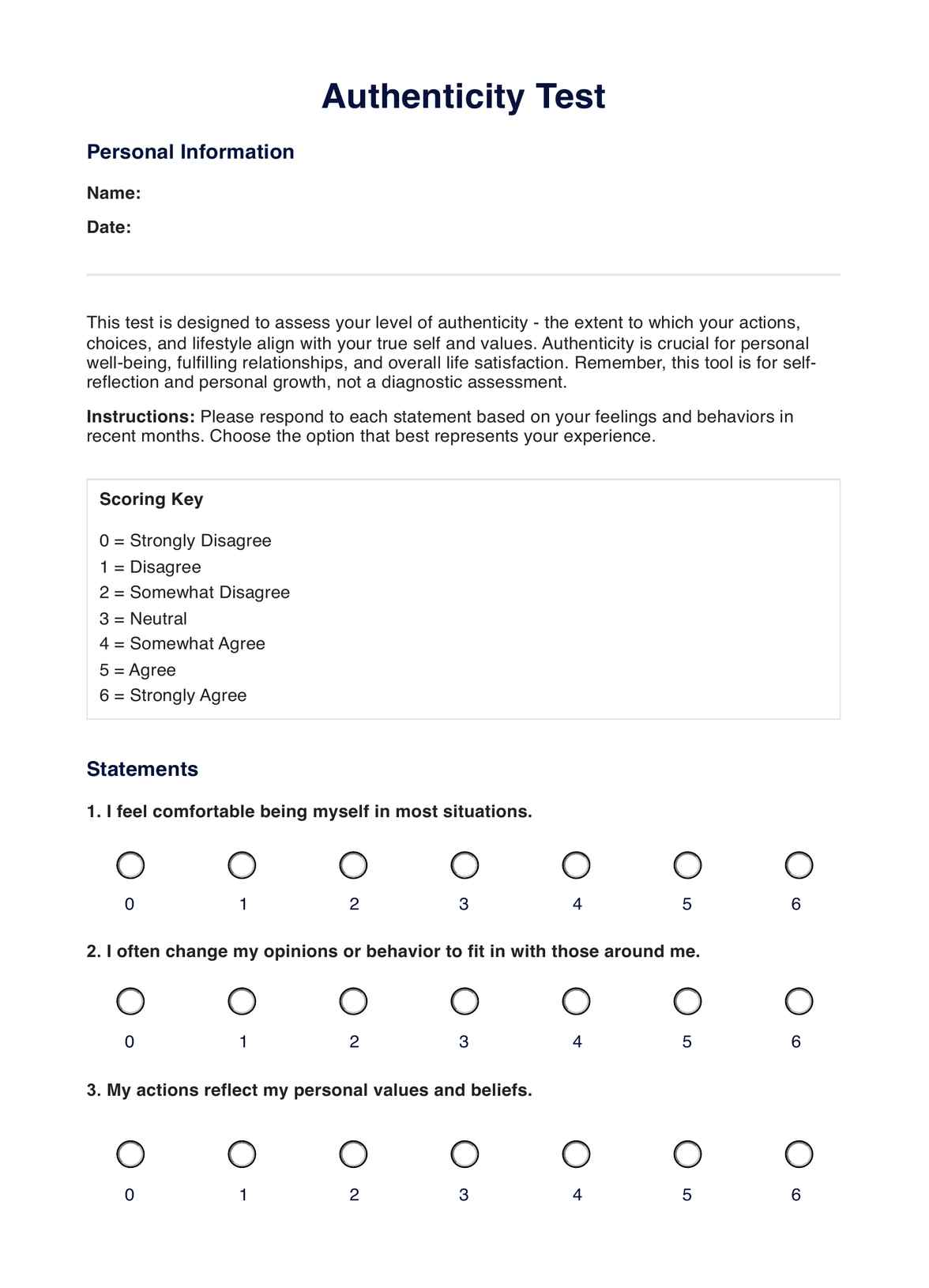The Authenticity Test is a self-assessment tool designed to explore the alignment between an individual's actions, choices, and core values. The test offers insights into authentic living and potential growth areas by reflecting on statements and questions.

Authenticity Test
Discover how authentic you are with our Authenticity Test. Uncover your true self, live more authentically, and improve your life satisfaction. Try it now!
Authenticity Test Template
Commonly asked questions
The test can identify areas where someone might prioritize external expectations over their inner voice, potentially compromising authenticity. Conversely, it can highlight aspects of life where an individual lives genuinely. Remember, the test is a starting point, not a definitive answer.
There are no pass or fail grades. The test assigns a score based on responses to a series of statements. A higher score generally indicates a greater degree of living authentically and prioritizing values. However, the actual value lies in interpreting and using the results to guide self-awareness.
EHR and practice management software
Get started for free
*No credit card required
Free
$0/usd
Unlimited clients
Telehealth
1GB of storage
Client portal text
Automated billing and online payments











